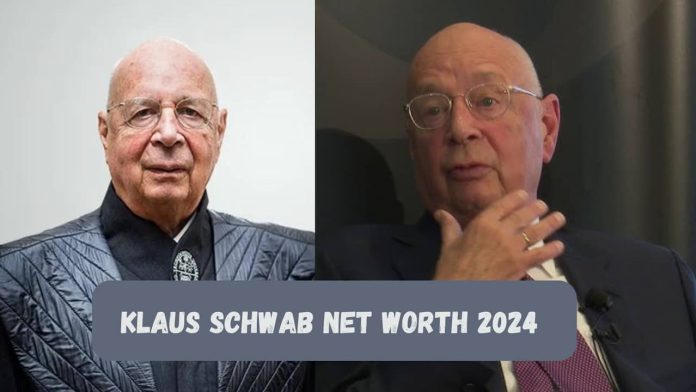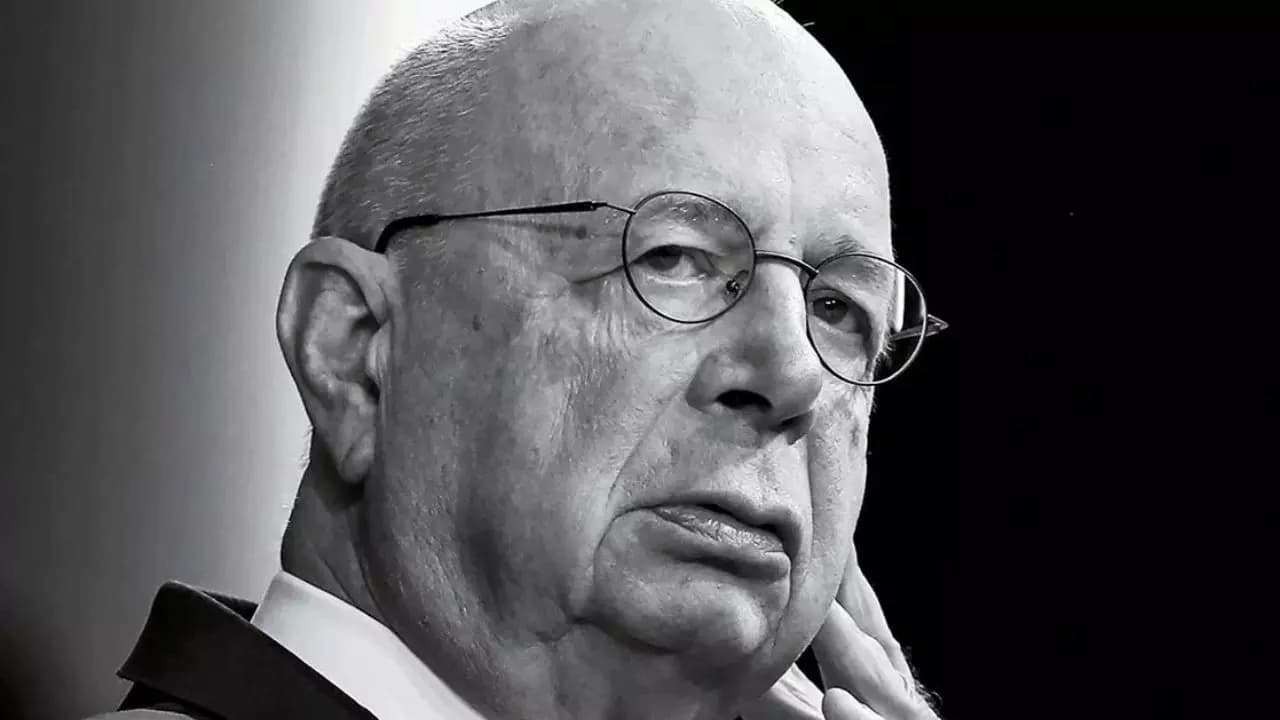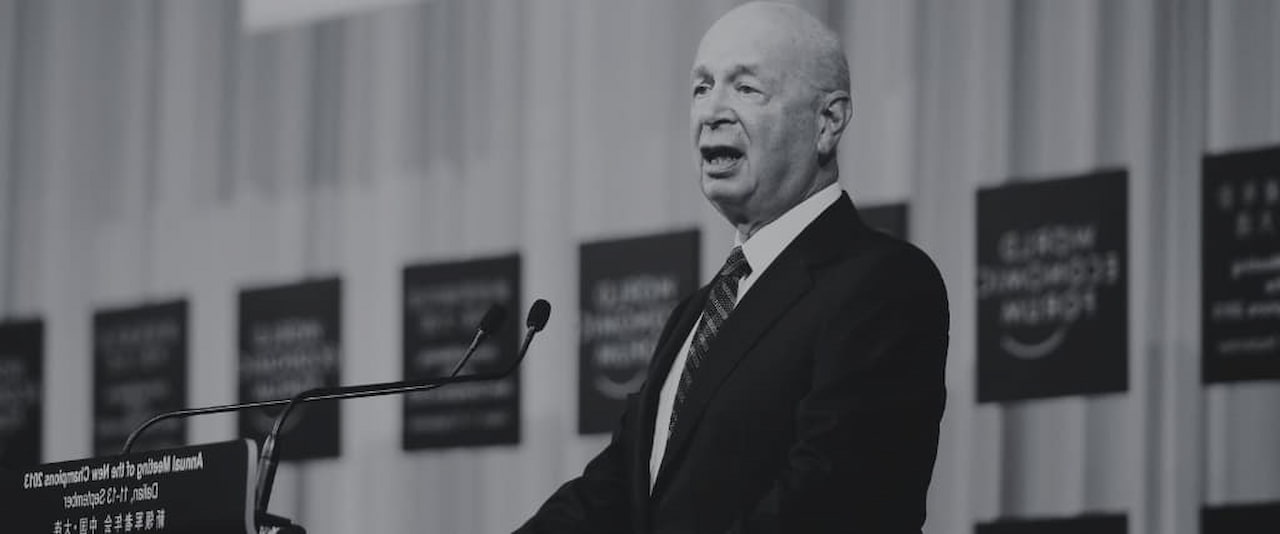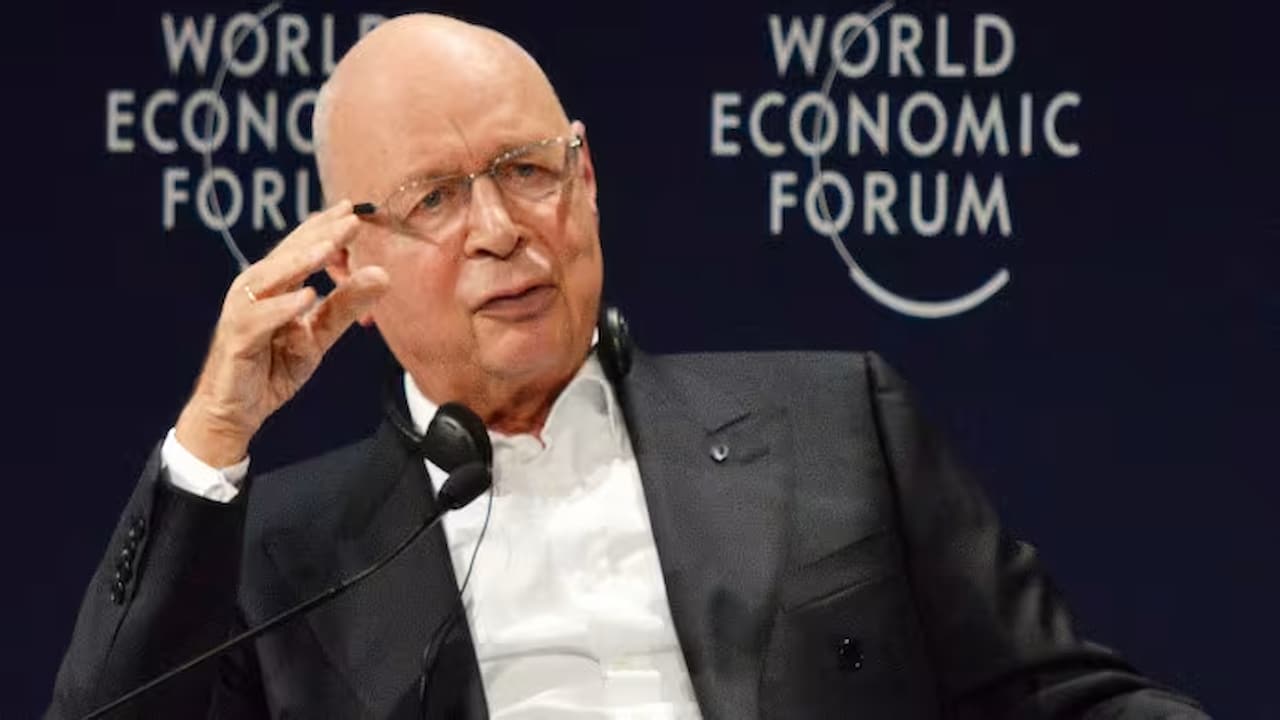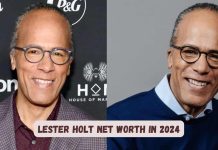Klaus Schwab Net Worth 2024 – Career, Wife, Age, Height, and …
Klaus Schwab is a name that has become synonymous with the intersection of global business, economics, and politics. As the founder and executive chairman of the World Economic Forum (WEF), Schwab has carved out a unique position of influence.
He has been praised and criticized for his vision of a more interconnected world. From humble beginnings as a mechanical engineer and economist, Schwab has become one of the most prominent figures on the international stage, shaping dialogues and policies with far-reaching implications.
Who is Klaus Schwab?
Klaus Schwab is a German mechanical engineer, economist, and the World Economic Forum (WEF) founder. Born in 1938 in Ravensburg, Germany, Schwab’s early life was shaped by the aftermath of World War II and his family’s connection to the industrial sector.
After completing his education, which included a doctorate in engineering from the Swiss Federal Institute of Technology and a master’s degree in public administration from Harvard University, Schwab embarked on a career in academia, serving as a professor of business policy at the University of Geneva from 1972 to 2003.
However, Schwab made his mark on the global stage 1971, founding the European Management Forum, which later evolved into the World Economic Forum.
The WEF, headquartered in Cologny, Switzerland, has become a prestigious and influential global organization, bringing together the world’s political and business leaders to shape economic and social policies. Schwab’s vision for the WEF has been to act as an integrating force, fostering collaboration and understanding among the world’s most powerful actors.
Klaus Schwab Early Life and Education Qualification:
Klaus Martin Schwab was born on March 30, 1938, in Ravensburg, Germany, to Eugen Wilhelm Schwab and Erika Epprecht. His family had strong ties to the industrial sector, as his father had moved from Switzerland to Germany during the Third Reich to assume the director role at Escher Wyss AG. This company served as a contractor for the Nazi regime.
Despite his family’s connection to the German regime, Schwab was raised Catholic and attended primary school in the Wädenswil district of Au, Zürich, in Switzerland. After the war, his family returned to Germany, where Schwab completed his secondary education at the Spohn-Gymnasium in Ravensburg, graduating with his Abitur in 1957.
Schwab’s academic pursuits then took him to the Swiss Federal Institute of Technology in Zurich, where he earned a doctorate in engineering in 1961. His dissertation, “Der längerfristige Exportkredit als betriebswirtschaftliches Problem des Maschinenbau” (Longer-term export credit as a business problem in mechanical engineering), laid the foundation for his future work in business policy.
Schwab also earned a doctorate in economics from the University of Fribourg and a Master’s in Public Administration from the prestigious John F. Kennedy School of Government at Harvard University.
Klaus Schwab Personal Life and Relationships:
In 1971, the same year he founded the European Management Forum, Schwab married his former assistant, Hilde Schwab. The couple married in the Sertig Valley at a Reformed church. They have two adult children, Nicole and Olivier.
Schwab and his family reside in the affluent Cologny suburb of Geneva, Switzerland, where the World Economic Forum’s headquarters are located. The Schwab family home, situated at the end of the WEF’s driveway, is estimated to be worth around $11 million, reflecting the couple’s comfortable financial standing.
| Attributes | Details |
|---|---|
| Full Name | Klaus Martin Schwab |
| Date of Birth | March 30, 1938 |
| Place of Birth | Ravensburg, Germany |
| Parents | Eugen Wilhelm Schwab (Father), Erika Epprecht (Mother) |
| Education | – Doctorate in Engineering, Swiss Federal Institute of Technology, Zurich (1961) |
| – Doctorate in Economics, University of Fribourg | |
| – Master in Public Administration, Harvard University | |
| Marital Status | Married |
| Spouse | Hilde Schwab |
| Children | Nicole Schwab, Olivier Schwab |
| Religion | Catholic |
| Residence | Cologny, Geneva, Switzerland |
| Height | 5 feet 10 inches (approx.) |
“Klaus Schwab Physical Appearance” Klaus Schwab is known for his distinctive physical appearance, which has become a recognizable part of his public persona. Standing around 5 feet 10 inches, Schwab has a slim, slightly older frame.
View this post on Instagram
His most notable feature, however, is his thick German accent, which has become a trademark of his public speaking engagements and media appearances.
Schwab’s appearance often evokes an image of a severe and intellectual figure, with his neatly combed gray hair and rimless glasses. His sartorial choices tend towards the conservative, with Schwab often wearing tailored suits and ties, further reinforcing his image as a seasoned business and political leader.
Klaus Schwab Professional Career:
- Mechanical Engineer and Economist
Schwab’s professional career began in academia, where he served as a professor of business policy at the University of Geneva from 1972 to 2003. During this time, he co-founded the Schwab Foundation for Social Entrepreneurship in 1998, an organization dedicated to promoting social innovation and entrepreneurship.
- Founding the World Economic Forum
In 1971, Schwab established the European Management Forum, later renamed the World Economic Forum (WEF) in 1987. The WEF’s mission is to “improve the state of the world” by bringing together global leaders from business, politics, academia, and civil society to shape economic and social policies.
- Shaping Global Agendas
Under Schwab’s leadership, the WEF has become a prestigious and influential global organization known for its annual Davos conference, which attracts the world’s political and business elite. Schwab has used the platform to advocate for his vision of “stakeholder capitalism,” a model that emphasizes the role of corporations in addressing social and environmental issues alongside their pursuit of profits.
- Authoring Influential Books
In addition to his work with the WEF, Schwab has authored several books that have contributed to his intellectual legacy and influence. His 2016 book, “The Fourth Industrial Revolution,” introduced the concept of a new technological era that would transform industries and societies. Schwab has also published works on topics such as COVID-19 and the rest of the global economy.
| Attributes | Details |
|---|---|
| Occupation | – Mechanical Engineer |
| – Economist | |
| – Founder and Executive Chairman of the World Economic Forum (WEF) | |
| Famous For | Founding the World Economic Forum |
| Career Highlights | – Professor of Business Policy, University of Geneva (1972-2003) |
| – Co-founder of the Schwab Foundation for Social Entrepreneurship (1998) | |
| – Author of “The Fourth Industrial Revolution” (2016) | |
| Awards and Honors | – French Legion of Honour |
| – Grand Cross with Star of the National Order of Germany | |
| – Japanese Grand Cordon of the Order of the Rising Sun |
Klaus Schwab Net Worth:
Klaus Schwab’s net worth is estimated to be $25 million to $100 million, making him significantly wealthy. His primary sources of wealth include his long-standing leadership position at the World Economic Forum, investments, book royalties, and speaking fees.
As the executive chairman of the WEF, Schwab is believed to earn an annual salary of around $1 million Swiss Francs (approximately USD 1.1 million). The prestige and influence of his role have undoubtedly contributed to his financial standing over the decades.
Additionally, Schwab’s stocks, bonds, and real estate investments have allowed him to diversify his wealth and further increase his net worth. While the specifics of his investment portfolio are not publicly known, it is clear that Schwab has been able to leverage his position and expertise to accumulate substantial personal wealth.
| Attributes | Details |
|---|---|
| Social Media Presence | Limited online presence through World Economic Forum’s official channels |
| Net Worth | Estimated between $25 million to $100 million |
| Annual Salary | Approximately $1 million Swiss Francs (around USD 1.1 million) |
Klaus Schwab Social Media Presence:
Klaus Schwab maintains a relatively low-profile social media presence, with a limited online footprint compared to other high-profile global figures. His primary online presence is through the World Economic Forum’s official social media channels, where he occasionally shares updates, thoughts, and insights related to the organization’s work and his views on various economic and social issues.
Special Address by @ZelenskyyUa, President of Ukraine with @ProfKlausSchwab #wef22 https://t.co/NNSMEq8HXs
— World Economic Forum (@wef) May 23, 2022
Schwab does not have personal accounts on popular social media platforms like Twitter, Instagram, or Facebook. This conscious decision to maintain a more private and reserved online presence may be a deliberate strategy to avoid the scrutiny and criticism that often come with a more active social media engagement.
Klaus Schwab Interesting Facts:
Schwab was the youngest professor in Switzerland when he began teaching at the University of Geneva in 1972.
- He has been awarded numerous honors and accolades, including the French Legion of Honour, the Grand Cross with Star of the National Order of Germany, and the Japanese Grand Cordon of the Order of the Rising Sun.
- Schwab has declined multiple offers for naturalization despite having three Swiss grandparents and two Swiss brothers.
- He has been criticized for his organization’s lack of financial transparency, and concerns have been raised about mixing the WEF’s finances with Schwab’s other business ventures.
- Schwab has faced allegations of sexual harassment and misconduct from former WEF employees, though the organization has denied these claims.
- In 2021, Schwab criticized the “profiteering,” “complacency,” and “lack of commitment” of the municipality of Davos, threatening to move the WEF’s annual meeting to an alternative location.
- Schwab’s 2016 book, “The Fourth Industrial Revolution,” introduced the concept of a new technological era that would transform industries and societies.
- He has been accused of promoting a “globalist” agenda and advancing the interests of the world’s elite through the WEF.
- Schwab’s vision of “stakeholder capitalism,” which emphasizes the role of corporations in addressing social and environmental issues, has been praised and criticized.
- The WEF has been criticized for its lack of transparency and the unelected political influence it wields on global affairs.
Klaus Schwab Other Interesting Hobbies:
While Klaus Schwab’s professional life has been primarily dedicated to the World Economic Forum, he is also known to have some personal interests and hobbies. One of his notable interests is art and culture.
Schwab is an avid art collector who is fond of European paintings and sculptures. He has also been involved in various cultural initiatives, such as supporting the arts and humanities through the WEF’s programming.
Additionally, Schwab is reportedly enjoying outdoor activities, particularly hiking and skiing in the Swiss Alps near his home in Cologny. These pursuits likely allow him to disconnect from the demands of his high-profile work and enjoy the natural beauty of his surroundings.
Final Words:
Klaus Schwab’s legacy as the founder and executive chairman of the World Economic Forum is complex and multifaceted. To some, he is a visionary who has sought to bring together the world’s most influential leaders to address global challenges and shape a more equitable future.
To others, he is a controversial figure, accused of promoting a globalist agenda and wielding unelected political influence.
Regardless of one’s perspective, Schwab’s impact on the global economic and political landscape cannot be denied. His stewardship of the WEF has cemented his place as a central figure in the ongoing debates surrounding the role of business, government, and civil society in addressing the pressing issues of our time.
As Schwab navigates the next phase of his career and the future of the organization he has built, the world will continue to watch closely, seeking to understand the true nature of his vision and its implications for the global community.

